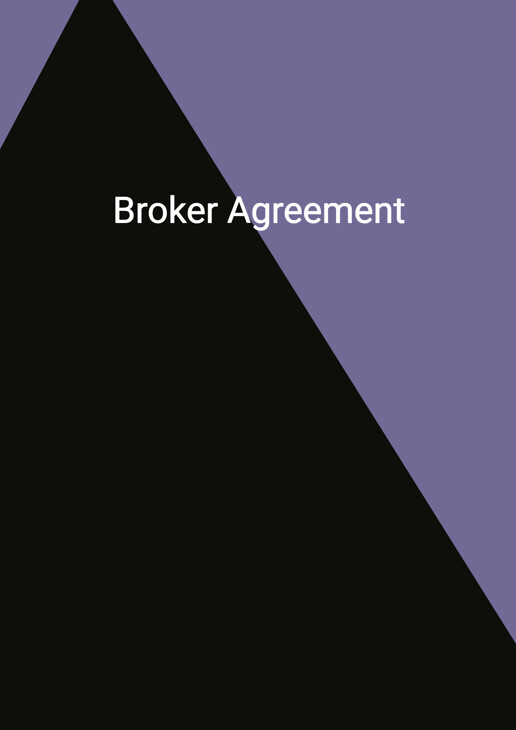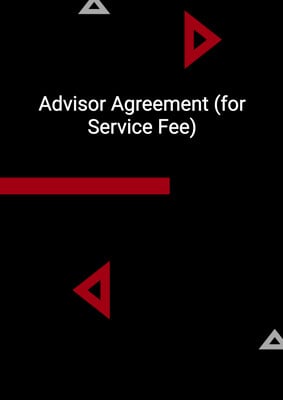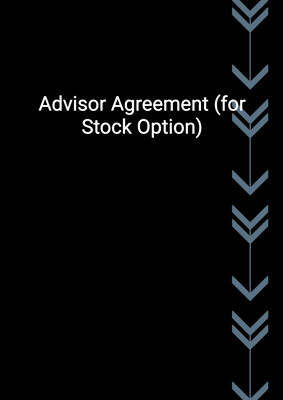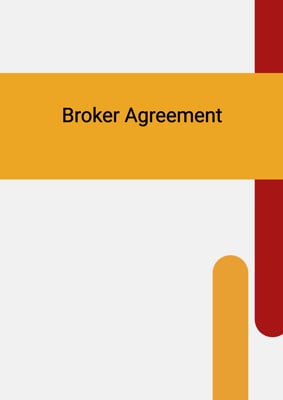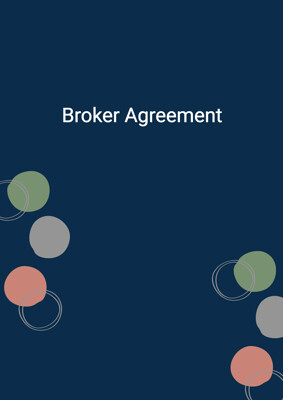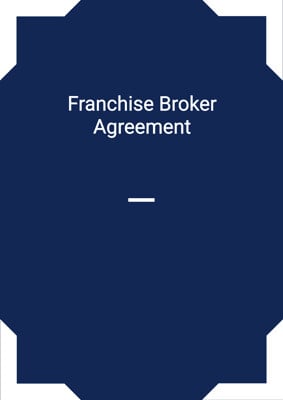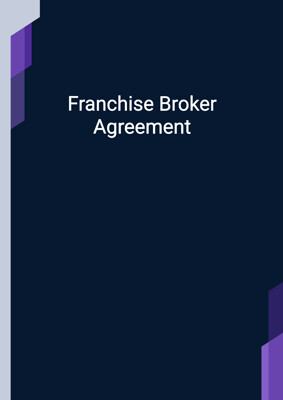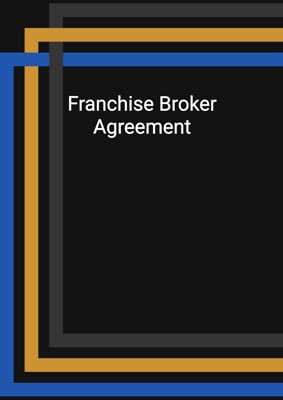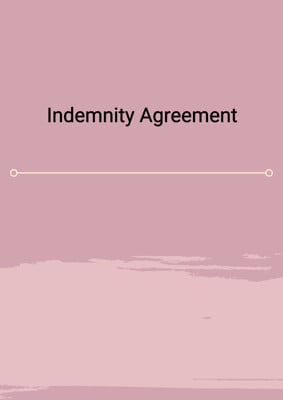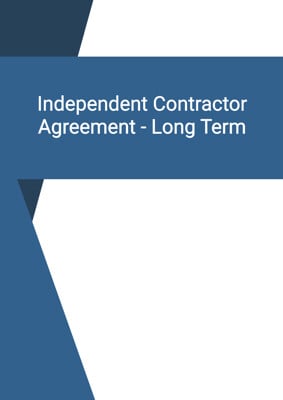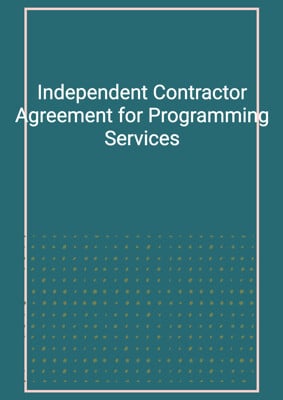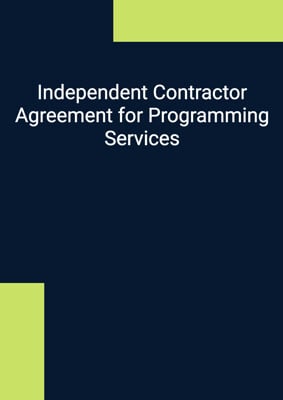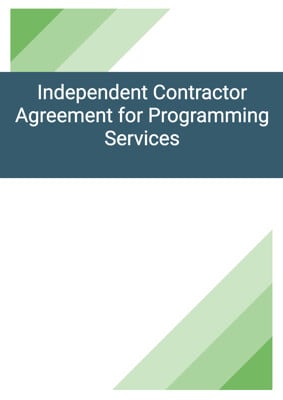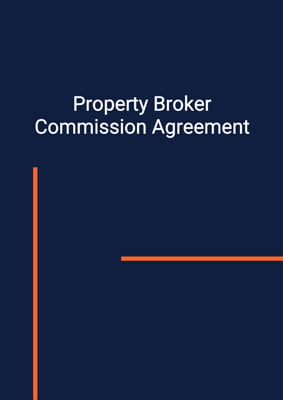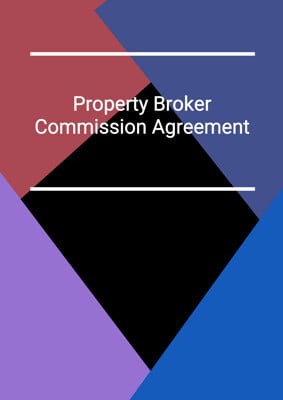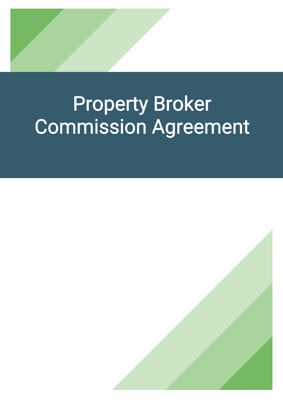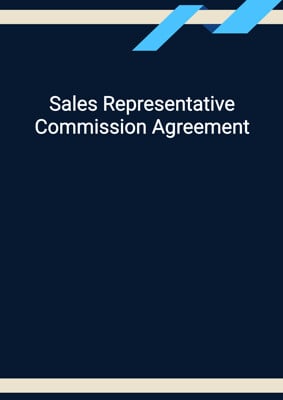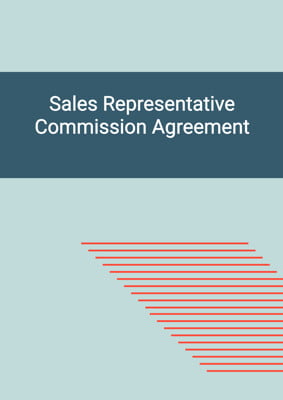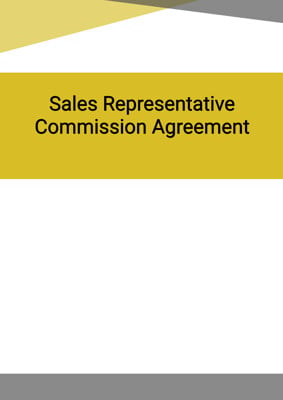How to Tailor the Document for Your Need?
01
Create Document
Fill in the details of the parties. You can click the "Fill with Member’s Information" button to complete it with information saved to your account.
02
Fill Information
Please fill in any additional information by following the step-by-step guide on the left hand side of the preview document and click the "Next" button.
03
Get Document
When you are done, click the "Get Document" button and you can download the document in Word or PDF format.
04
Review Document
Please get all parties to review the document carefully and make any final modifications to ensure that the details are correct before signing the document.
Document Preview
Document Description
The Broker Agreement is a document that establishes a contractual relationship between two parties, namely the Company and the Broker. The document outlines the scope of services, commission structure, obligations of the broker, term of the agreement, termination provisions, and miscellaneous clauses.
The importance of this document lies in its ability to formalize the engagement between the Company and the Broker. By clearly defining the rights and responsibilities of each party, the agreement helps to mitigate potential disputes and ensure a mutually beneficial relationship.
The document begins with an introduction, stating the names and principal places of business of both parties. It highlights that the Company is in the business of selling products and that the Broker will be engaged to identify and introduce prospective clients for the sale of these products. The agreement emphasizes that the Broker will receive a commission for each product sold as a direct result of their introduction.
The first section of the document, titled 'Scope of Services,' outlines the specific responsibilities of the Broker. It states that the Broker will use commercially reasonable efforts to identify and introduce new prospective clients to the Company. The Broker is required to provide written identification of all clients to the Company. The section also clarifies that the Broker will not be entitled to a commission for clients who were already in contact with the Company before the effective date of the agreement.
The second section, titled 'Commission,' details the commission structure. It specifies the percentage of the sale price that the Broker will receive for each product sold as a result of their introduction. The sale price is defined as the net value of the product paid in full by the client. The Broker is responsible for issuing an invoice to the Company upon determination of the commission. The Company is obligated to make the commission payment within a specified number of days after receiving the contract price in full from the client.
The third section, titled 'Obligations of Broker,' outlines the various obligations and restrictions placed on the Broker. These include diligently working to identify and introduce clients, obtaining written consent from the Company for any commitments made on its behalf, refraining from entering into legal agreements with clients, and maintaining confidentiality of the Company's business secrets. The Broker is also prohibited from soliciting the Company's clients, manufacturers, or suppliers after the termination of the agreement.
The fourth section, titled 'Term,' states that the agreement will commence on the current date and continue until terminated in accordance with the terms of the agreement.
The fifth section, titled 'Termination,' provides the conditions under which either party can terminate the agreement. It specifies that written notice of intention to terminate must be given at least thirty days before the intended termination date. Certain obligations of the Broker, such as confidentiality and non-solicitation, will survive the termination of the agreement. The Broker is entitled to receive a commission for all sales concluded before the termination date.
The sixth section, titled 'Miscellaneous,' includes various additional provisions. It clarifies that the Broker will serve as an independent contractor and not an employee of the Company. The Broker is responsible for paying taxes and expenses incurred in their sales endeavors. The section also addresses the method of communication between the parties and includes clauses regarding waiver, entire agreement, invalidity, and assignment.
The seventh and final section, titled 'Governing Laws and Jurisdiction,' establishes the governing laws and jurisdiction for any disputes arising from the agreement.
In summary, the Broker Agreement is a crucial document that formalizes the engagement between the Company and the Broker. It outlines the scope of services, commission structure, obligations of the broker, term of the agreement, termination provisions, and miscellaneous clauses. By clearly defining the rights and responsibilities of each party, the agreement helps to ensure a smooth and mutually beneficial relationship.
How to use this document?
1. Identify and introduce prospective clients: The Broker should use commercially reasonable efforts to identify and introduce new prospective clients to the Company. All clients should be identified in writing.
2. Commission structure: The Company will pay the Broker a commission based on a percentage of the sale price for each product sold as a result of the Broker's introduction. The sale price is the net value of the product paid in full by the client.
3. Invoice issuance and payment: Upon determination of the commission, the Broker should issue an invoice to the Company. The Company is obligated to make the commission payment within a specified number of days after receiving the contract price in full from the client.
4. Diligently work to identify clients: The Broker should diligently work to identify and introduce clients to the Company. This includes facilitating introductions and communications, exchanging information, and arranging meetings between the Company and potential clients.
5. Confidentiality of business secrets: The Broker must keep all of the Company's business secrets confidential at all times during and after the term of the agreement. This includes not making unauthorized copies or records of any business secrets or removing any business secrets from the Company's facilities without consent.
6. Termination and non-solicitation: Either party has the right to terminate the agreement by providing written notice at least thirty days before the intended termination date. After termination, the Broker should not solicit or approach any of the Company's clients, manufacturers, or suppliers.
7. Independent contractor status: The Broker will serve as an independent contractor and not as an employee of the Company. The Broker is responsible for paying taxes and expenses incurred in their sales endeavors.
8. Communication and notices: All notices should be made in writing or by email. The addresses of the parties should be clearly stated in the agreement.
9. Entire agreement and amendments: The agreement constitutes the whole agreement between the parties and supersedes any prior agreements or understandings. Any alterations or variations to the agreement must be made in writing and signed by both parties.
10. Governing laws and jurisdiction: Any disputes arising from the agreement will be governed by the specified laws and jurisdiction.
Note: This guidance provides a brief overview of the key steps involved in using the document. It is important to refer to the actual document for complete and accurate instructions.
Not the right document?
Don’t worry, we have thousands of documents for you to choose from:
